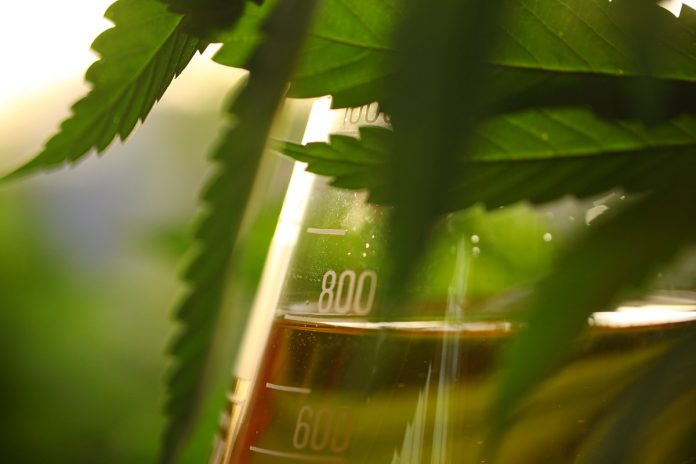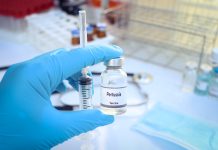Here, Evolve Ltd’s Managing Director, Christopher Busuttil Delbridge, takes us progressively deeper into what it takes to ensure regulatory compliance for Medical Cannabis
Did you ever doubt that the prescribed medication you have been ingesting did not contain what the doctor ordered? We are living through times when the words ‘Clinical Trials’ have captured the imagination of everyone when referring to the safety-controlled experiments being carried out to find a cure for COVID-19. How do leading Pharma companies like AstraZeneca and others make sure that what is required for the patient is found in the right quantity, evenly distributed in every dose, without any unwanted poisons or chemicals and free from harmful microorganisms and in the right physical conditions? They do this through QC testing – Quality Control. The main reason for all this is Patient Safety. Not only is poor quality control dangerous to patients and consumers, but it can also put the reputation of a company at risk: if a patient has been harmed by a product, the entire batch will need to be recalled and a full investigation launched into the root cause.
In the series of four articles over the course of a year, Evolve Ltd’s Managing Director, Christopher Busuttil Delbridge, will be taking us progressively deeper into what it takes to ensure regulatory compliance for Medical Cannabis.
Every product manufactured in the world to certain criteria needs to abide by very specific quality standards. All the more so if this is to enter the human body in some form or shape. There we are looking into very rigorous and stringent procedures. This is what Good Manufacturing Practice (GMP) standards, as laid out in region-specific Pharmacopeial compendia, seek to address. For Cannabis to be labelled ‘Medical Grade’ there is absolutely no difference from any other pharmaceutical form. And the sooner traditional manufacturers move from their well-honed agricultural mindsets to face the new reality of GMP regulations, the more solid their investment and business plan becomes. No Medical Cannabis processing company anywhere along the value chain which is worth its salt can survive without strict adherence to a Quality Control mindset.
In the case of Medical Cannabis, growing the chosen strain of plant over and over again reproducibly is the first challenge. This is achieved by various methods including:
- Using the same ‘mother plants’ and cloning (creating an exact genetic replica) new plants from them.
- Cutting only the top bud (since different ‘flowers’ along the stem contain different ratios of the required active ingredients).
- Controlling the variables of the environment. That is why Good Agricultural Practice methods (GACP) is a requirement for anyone growing Cannabis for Medical formulations.
- And finally TESTING, more specifically Quality Control testing.
Once the ‘raw material’ is ready, it must undergo various processes to be ready for consumption in all the various forms such as dried flower, extracts, tinctures and even incorporated into foods.
Most would be familiar with terms like CBD (Cannabidiol) or THC (tetrahydrocannabinol) which are the two umbrella terms for the ingredients inside Cannabis which give most of the required reactions. Therefore, the content of these two and the ratio between them is one of the most important assays that any QC lab has to run. Testing for pesticides which were used during the growing process is another key test, as is testing for heavy metals, aflatoxins (indirect measure of fungal contamination), microbiological contamination and solvents (if extraction was used).
This basic non-exhaustive list of tests is unfortunately still not coordinated between various countries, and even when they are, the limits of detection and allowable limits do not always tally. It is an accepted fact that Medical Cannabis is a relatively young industry. This, combined with the facts that we are dealing with a natural product which is very complex by nature, makes the role of any company setting up its QC structure a headache.
Analytical instrumentation, such as High Performance Liquid Chromatography (HPLC), Gas Chromatography (GC), Mass Spectrometry (MS) and Inductively Coupled Plasma (ICP), have long been perceived to require extensive experience in the laboratory, with training or a deep understanding of analytical chemistry. However, with the increased need for quality control and quality assurance in the buoyant cannabis industry, methods and semi-automation of these technologies are coming to the fore. The use of more intuitive software interfaces and a progressively digital-ready workforce lower the threshold of the required learning curve.
It is evident that the global cannabis production industry requires significant change and challenges must be overcome around analytical testing to provide consistently high-quality products. A well set up QC laboratory can alleviate this challenge. With the rapidly changing laws and regulations within the industry, this ability is going to be vital to provide a consistent, tested product to customers in the highly competitive marketplace.
Setting up or upgrading a Cannabis growing, processing, or testing facility up to the required GMP standards need not be that much of a hassle, though. Scientific consulting firms such as Evolve Ltd have done it all before and have all the required expertise to make this a pain-free experience for anyone investing in this process, especially in Europe and sub-Saharan African countries where Evolve operates.
Please note: This is a commercial profile
© 2019. This work is licensed under CC-BY-NC-ND.











